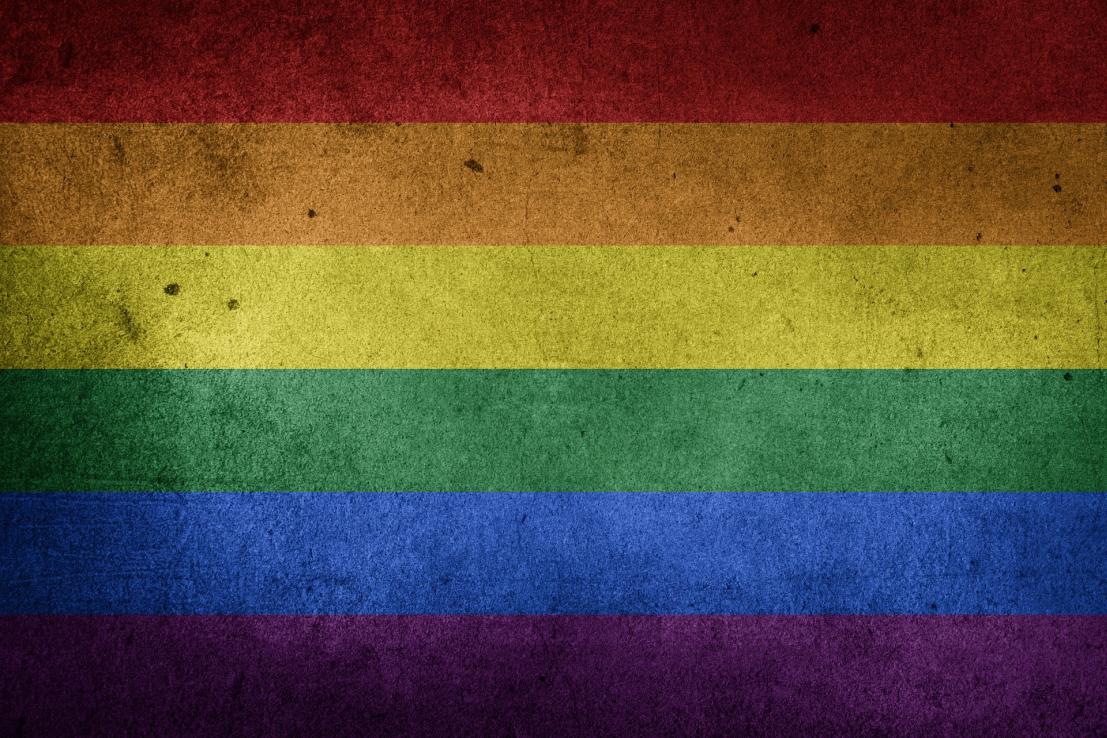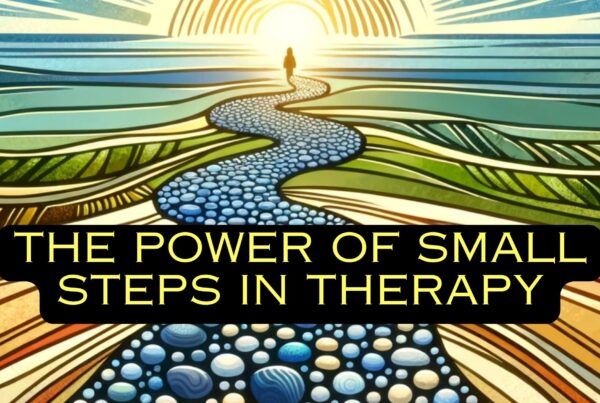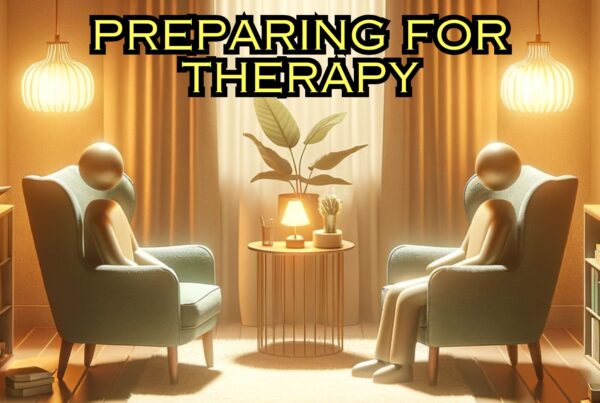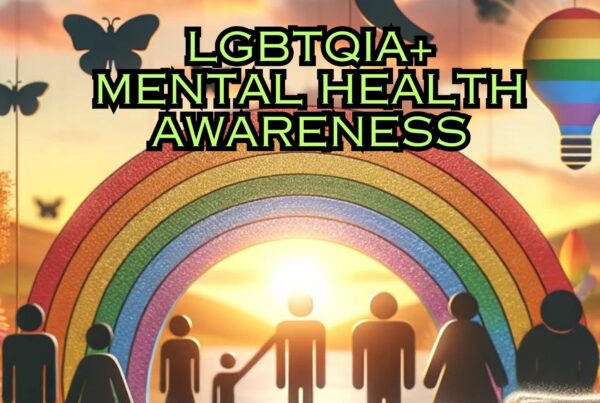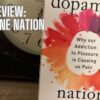Mental Health Issues in the LGBTQIA Community
Why we need to focus more on mental health issues in the LGBTQIA+ community
Imagine for a moment that you're broken your foot or sprained your ankle. You would naturally go to the doctor or your physiotherapist who would then begin treatment. This treatment could take a handful of weeks or perhaps even months, depending on how severe it is. During that time, you may have to walk on crutches and, no doubt, your friends will write witty comments on your plaster cast if you have one. You would receive well wishes from your friends hoping for a speedy recovery and you would follow the instructions of your doctor or physio until such time that the problem was fixed and you were capable of walking on your own again.
This makes sense, doesn't it?
Yet consider the difference when it comes to mental health. Now, like a broken or sprained foot, you may not be able to see the issue but you can certainly feel it. Yet how many people are hesitant to go and see a specialist to fix the situation. They sit in fears of shame and guilt that they should be stronger. They sit with fear of what their family and friends will think, scared that they'll be exposed as weak and flawed. Even then, if they do go and see a specialist, they may expect a quick fix or simply be unwilling to do what is required of them, resistant to the treatment being offered. Their friends may indeed be uncomfortable or awkward in talking to them about their problem and this may impact on their time together – and that's only if they've had the courage to share it with them.
Why is it that we have no problem addressed and doing what we need to do with a physical problem and yet we are resistant and shun seeking help for more psychological issues?
The statistics in Australia are staggering. 1 in 5 Australians will experience depression at some point in their life. When you consider many other factors in the world, it is easy to believe that we will begin to see more people struggling with depression, stress, anxiety and many other mental health issues in the years to come. This will have an impact on our relationships, our health system, our economy and, most frightening, our ability to just function as a human being.
In writing this piece, I needed to start by saying that mental health is something that has the potential to affect everybody regardless of their sexual and gender identity. It needs to be addressed and discussed at a far more universal level. However, stop for a moment and consider what impact mental health has at the LGBTQI community level.
Gay, Lesbian, Bisexual and Transgender people are three times more likely to experience depression. 6 in 10 will experience verbal homophobic abuse. 2 in 10 will experience physical homophobic abuse. 80% of homophobic bullying occurs in schools. As a community, the LGBTQI community can often feel isolated, alienated and alone, and this is something that they begin to experience at a very early age.
Open up any newspaper right now and you'll see the makings of a media and political war over a marriage equality plebiscite where anti-marriage equality parties are going to be more than happy to throw every manner of misinformation out there to persuade people that the gay and lesbian community do not deserve to be treated as equal citizens. Consider what kind of impact that is going to have on people within that community who have been with their partners for decades and who still can't express it in the same way their heterosexual counterparts can? Or for the young adult who is just discovering their sexuality and being subjected to these ideas that imply they're flawed or different or just 'wrong'? Or even for those out there single but hoping that one day they will have the opportunity to express their love in the same way their parents, siblings and friends are allowed?
As a child growing up, I knew I was different to the other boys, and not in a good way. I couldn't put my finger on exactly what it was that was different, I just knew that I wasn't the same. Worst of all, they sensed it too. They knew as well. In all manner of ways, subtle and not so subtle, they let me know that they knew and that I was different to them. At an early age, unable to master the psychological flexibility needed to stand proud, this generated a sense of shame in who I was. A sense that I was faulty and 'wrong'. This was reinforced so many times over the years, it moved beyond being something I questioned about myself and became a part of my accepted identity.
Over time, I would unconsciously create other versions of me to help move away from those feelings of shame at being different. For a brief period, I even had a girlfriend in high school although I knew at that time that it was not right for me. In fact, I didn't feel sexual attraction to anyone; I had disassociated that part of myself. That may have been self-preservation or it may have been to avoid dealing with whatever feelings were lurking and growing. I'm not too sure, I just know that emotionally, there was nothing there.
Even after coming out, there was still that part of me that searched for validation. Wanting to know that I was accepted. We would bend and twist our personalities to sometimes fit in, creating a version of ourselves that won people over and was liked. We became superficially focused on ensuring that we looked good and that people found us attractive, or we lamented when we felt that we were not attractive enough and became bitter at those who were blessed with wonderful good looks. I may have begun the process of self-acceptance and reaching pride however it still didn't stop those existing unconscious patterns of behaviour from playing a part in my desire to be accepted. After all, those patterns had been unconsciously used and reinforced so often, they were just a part of who I was.
And when we didn't get that validation, we would sometimes feel a sense of anger or rage building up in us, exploding out in a drama queen way at a world that seemed incapable of giving us what we felt we truly desired. Instead, we turned to so many other options to help fill that void; food, alcohol, drugs, sex, pop culture, all used to fill a void that we thought they could satisfy but ultimately it felt empty and hollow. At the moment, the LGBTQI community is facing some real issues when it comes to addiction and the inability to find self-compassion, and in Australia, the political landscape isn't helping the cause. Over the coming months, the media is going to be forced to play advertising that promotes hatred and misinformation against the LGBTQI community and for those people who are fragile or who question that they're flawed, it may lead to mental health issues or, worse, suicide.
I certainly can't speak for the younger generation, who I hope will have an easier coming out with more social acceptance however for many gay men my age, I suspect my words may feel all too familiar.
No one is perfect. Regardless of if they're straight or gay, everyone carries around issues that may have been created as early as childhood. We all have shame. We all have guilt. We all have areas where we just feel we might not be enough and fear being seen as too weak and vulnerable. For many gay men though, that experience from childhood of knowing they were different from everyone has can have such a long-lasting effect through life, constantly looking for validation and leading to issues such as addiction, anxiety and depression. Some will rise above it and find self-acceptance. Others may think they have but a new situation or circumstance brings reality crashing back down around them.
This is why the LGBTQI community needs to talk more about mental health. We need to help release those feelings of difference that we've lived with for so long and to be able to move closer to our authentic, real selves. We need to be able to embrace our imperfections and to understand ways in which we can take better care of our own mental health. We need to recognise the parts of us that we may have disowned or distanced ourselves from and embrace them again. The discussion can help us to recognise parts of ourselves that we may no longer recognise and to reintegrate them once more.
In November, I will be launching a new podcast titled OUTthink. The aim of this podcast is to be able to talk about situations and issues that impact on the LGBTQI community but to view it through more of a psychological lens and to be able to discuss strategies and ways in which people can begin to take steps towards resolving those issues and being true to yourself. We're not expecting perfection but we are expecting people to discover self-compassion, self-acceptance, awareness of why we do what we do and an ability to feel empathy and connection with others in our community.
I'm truly excited to begin getting OUTthink out there and if it is something that you think you would like to be a part of too, then please feel free to drop me a line at lawrence@releasehypnosis.com.au.
More statistical information can be found here.
Book Your FREE 30 Minute Consultation With Release Hypnosis NOW!
You may also like to read:
How To Stop The Negative Thoughts From Taking Control
The Mindfulness Toolkit
The Importance of Acceptance To Mental Health
Unlock The Power Of Your Mind With a Hypnosis Audio Recording

